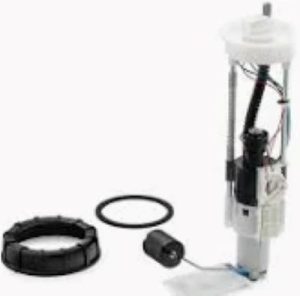Misfires result from different mechanical or electrical elements, but certain misfires are triggered by a clogged fuel pump, which changes the intended chemical equation between air and fuel. In the presence of an imbalanced air-fuel mixture, where a fuel pump that fails to push through either it's proper volume or pressure; the engine will stage a misfire. Running out of fuel causes imprecise combustion, which obviously reduces the efficiency of the engine. A vehicle that normally demands 30-40 psi of force to enter its engine torpor will start experiencing significant motor delays and off-combustion practices as the levels drop from congestion. This imbalance puts additional stress on the crankshaft and can lead to a drop in fuel efficiency of 15% or more when at its worst.
If ignored long enough, these misfires, which sometimes get dismissed as minuscule hiccups, can cause irreparable damage to the motor. When a fuel pump is clogged, it may seem to supply enough fuel, but the result will be fluctuations in supply which then becomes inconsistent engine cycles. It is obviously affecting not only the lifespan of the engine but also results in more incomplete combustion products that subsequently become hydrocarbons in the exhaust. About 5% of emission-related problems in older vehicles have been confirmed to be due to defective fuel pumps based on data.
Fuel pumps that have become clogged are especially common in cars with high mileage, as dust, rust, impurities and remnants from old fuel form at the bottom of the tank trends to accumulate them over time. Misfires, those intermittent stutters that many drivers ignore as a minor inconvenience. But as engines are designed to run on precise amounts of fuel and air, variance breaks the balance and it can reduce power output by up to 25 percent in certain cases. Not just in performance, this power drop can place additional strain on equipment that is attached to the engine like ignition coils and spark plugs which ultimately results in higher repair bills.

This is another reason that regular maintenance checks can help prevent misfire issues: because a clogged fuel pump. Based on repair orders issued by auto service centers, a fuel pump that is worn or clogged should be replaced every 100,000 to 120,000 miles for smooth engine operation. Industry experts also point to the critical need for fuel system checks since signs of clogging can be detected early enough to avoid misfires due to other downstream errors. As one car owner puts it — "maintenance is cheaper than repair" — which shows just how much trouble these checks can save drivers.
This doesn't help anyone who has engine misfires or noticeable loss of power, but it all comes back to the old saying – check fuel delivery. While repairing poor fuel delivery can require nothing more than DIY effort itself, allowing it to fester and worsen could lead to bigger issues with bigger price tags. Finally, a cleaner more efficient fuel pump result in a lower emissions output which is good to help the world (both green trees and your pocket book). This preventative damage from misfires will not only improve the performance of your vehicle, but also extend its life along with these following maintenance practices. More on fuel pumps Check out our page on Car Care about caring for your fuelpump.
